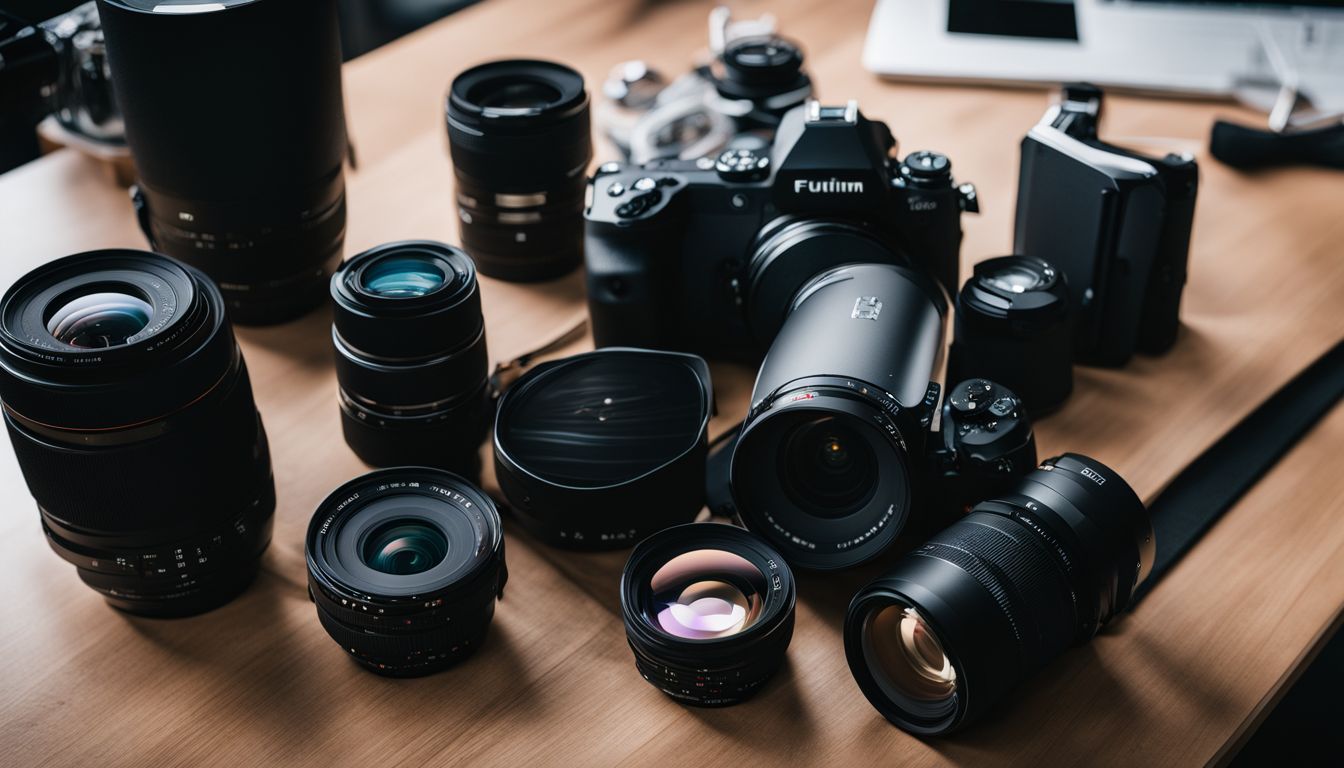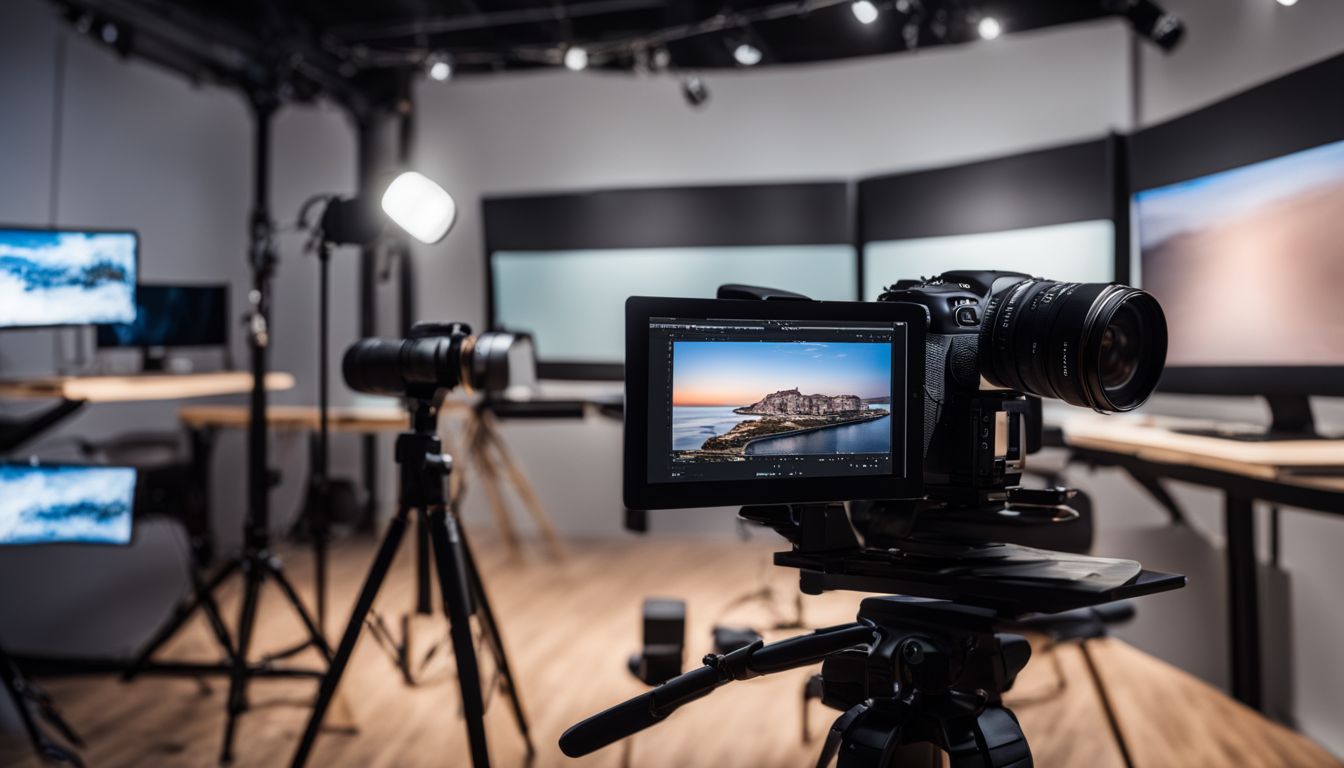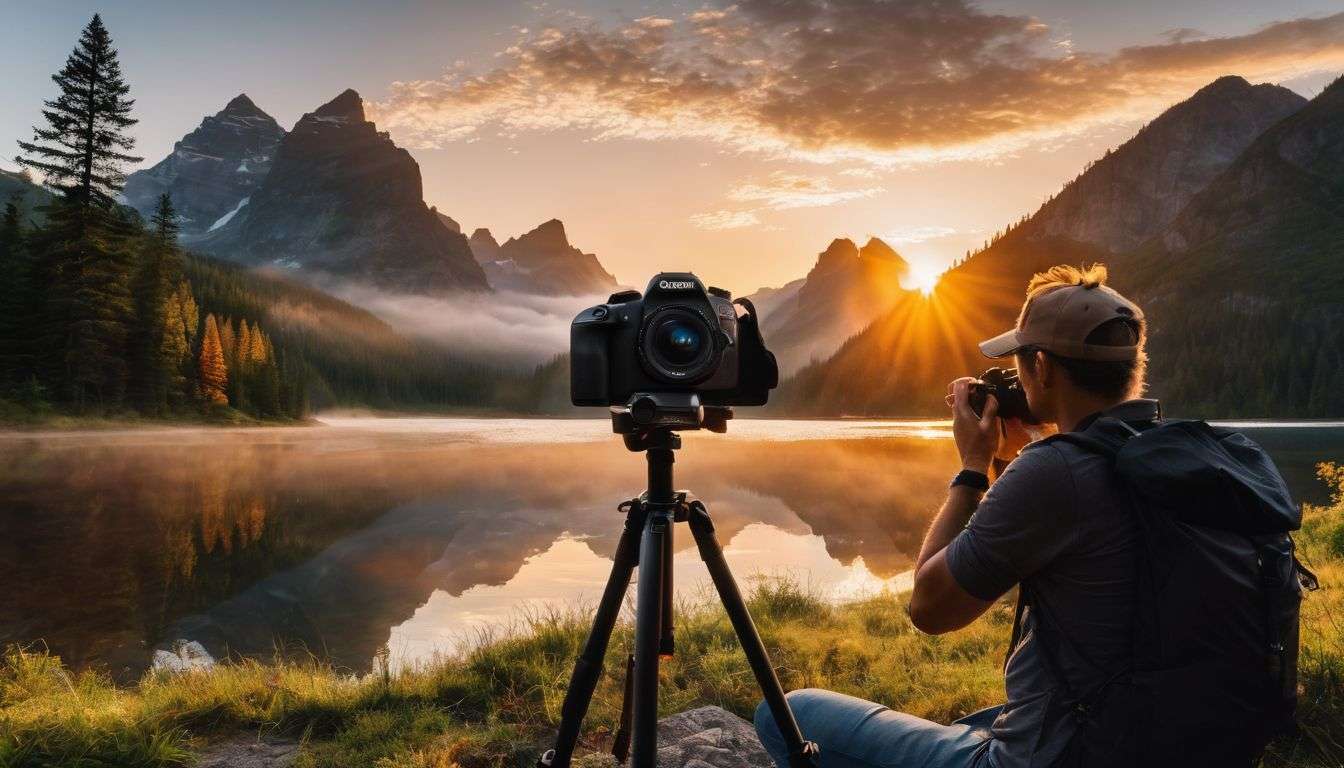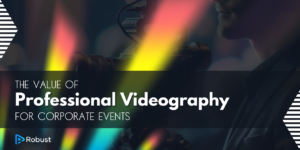Ever pondered over the amount of time it takes to truly master videography? It’s a question that has intrigued many an aspiring videographer. Research suggests that budding videographers usually put in about 3-4 hours daily honing their craft before they begin creating commendable content.
This comprehensive post aims to shed light on the likely duration you’d need to invest in learning videography, starting from scratch. We’ll delve into everything – understanding video editing fundamentals and becoming adept with tools like Premiere Pro or Final Cut, all while enriching your journey towards mastering this art form.
Be prepared for quite an insightful exploration ahead!
Key Takeaways
- Budding videographers typically spend 3 – 4 hours daily practicing their craft before producing commendable content.
- Factors like prior technical and artistic training, access to materials and footage, the level of difficulty, prerequisites, and cost can impact the time it takes to learn videography.
- Learning video editing basics can take as little as a week, while mastering the craft and tools like Premiere Pro or Final Cut may require months or even years of practice.
- Online courses for learning videography range from 1 to 6 months in duration, but there is no set time frame as learning depends on individual learning styles and dedication.
Factors Affecting the Time to Learn Videography

Several factors can influence the time it takes to learn videography, including prior technical and artistic training, access to materials and footage, and the level of difficulty, prerequisites, and cost associated with learning.
Prior technical training
Having some technical skills can help you learn videography faster. This training could be in using cameras, computers, or software. People with this background often find it easier to get started.
They have a head start in understanding things like camera settings and editing tools. However, if you don’t have these skills yet, that’s okay too! You can still become a great videographer.
It might just take a bit longer to learn all the tech stuff at first.
Prior artistic training
Artistic training helps a lot in learning videography. It is one of the key factors that can make you a quick learner. If you have a good eye for design, colour, and composition, you save time.
You are already half-way there.
You don’t need to start from scratch if you’ve got prior knowledge of graphic design or other artistic skills. They will help in creating well-shot videos with great storytelling elements.
Having these skills means better videos and less time spent on learning new ones from zero!
Access to materials and footage
We need good tools to learn videography fast. The camera and computer are the key items. They let us shoot and edit our own content. We also need video editing software like Premiere Pro or Final Cut.
It’s great if we have access to a range of footage too. We can practise with different types of shots and scenes. If we don’t have enough clips, online resources come in handy. They offer free clips for practice sessions.
Level of difficulty, prerequisites, and cost
Not all courses are the same. Some are hard, and some need you to know things first. Often, you must pay money too. For example, classes in school or college ask for a lot of work.
Also, they can be costly but help get a job faster as an expert video maker. It’s important to note that video editing tools like Premiere Pro take time and use often to learn well.
So, it can mean more hours spent on learning than planned at first! But being able to shoot your own content just needs three or four hours! That’s not bad at all.
Getting Started in Videography

To get into videography, you need a few things. First, you must have a camera. You don’t need a fancy one to start, any simple type will do. The key is to start shooting your own content.
This helps you understand the basics of film production and video shooting techniques.
Next, you must learn about lighting techniques and storytelling in videography. They are critical parts of video making too. You also have to know how to use editing tools like Premiere Pro or Final Cut.
These skills take time to master but keep going! No matter how long it takes, stay focused on your goal: learning videography.
Average Time to Learn Video Editing
The basics of video editing can be learned in as little as a week, but mastering the craft and learning tools like Premiere Pro or Final Cut takes a few weeks of dedicated practice.
Basics can be learned in a week or even a day
You might be surprised how fast you can pick up the basics of video editing. If you’re keen, it could take just a day or even less! We’ve seen quick learners who, with strong drive and enough free time, can grasp simple cuts and transitions in hours.
Knotting these skills tightly may need about a week’s work. This short span lets you hop on your videography journey faster than most think possible. You’ll find excitement in putting together pieces of footage to tell a story.
Stick with it, practice often, and the steps will become second nature sooner than expected!
Mastering the craft takes longer
You can’t master videography in a day. It takes a lot of time. A pro artist needs years of practice and work. You must shoot your own content regularly. This is vital for getting better at the craft.
The more you use video editing tools like Premiere Pro or Final Cut, the quicker you become a master. Even with full focus and hard work, it may take several months to be good at this skill.
Yet, this should not stop us from trying hard every day!
Learning tools like Premiere Pro or Final Cut takes a few weeks
When it comes to learning video editing tools like Premiere Pro or Final Cut, it usually takes a few weeks to become comfortable with the software. These programs have many features and functions that may take some time to grasp fully.
However, with consistent practice and dedication, you can quickly pick up the basics and start creating your own videos in just a matter of weeks. It’s important to remember that mastering these tools may require additional time and experience, but getting started is achievable within a few weeks of focused learning.
Learning Videography
Online courses ranging from 1-6 months are available for individuals looking to learn videography, but there is no set time frame as learning depends on individual learning styles and dedication.
Hands-on practice is vital in mastering the skills required for videography.
Online courses ranging from 1-6 months
Online courses for videography are available and typically range in duration from 1 to 6 months. These courses offer a structured learning experience where you can gain essential knowledge and skills in various aspects of videography, such as camera operation, lighting techniques, storytelling, and video editing.
The length of time it takes to complete the course will depend on your individual learning style and the amount of time you can dedicate to studying each week. It’s important to note that these courses provide a foundation for learning videography, but hands-on practice and real-world experience are also crucial for mastering the craft.
No set time frame, dependent on individual learning style
The time it takes to learn videography varies for each person because there is no set time frame. It depends on an individual’s learning style and abilities. Some people may pick up videography quickly and become proficient in a short amount of time, while others may take longer to grasp the concepts and techniques.
There are factors such as prior experience, dedication, and practice that can influence how fast someone learns videography. It’s important to remember that everyone learns at their own pace, so don’t get discouraged if it takes you longer than someone else.
The key is to stay motivated, keep practicing, and continue learning from resources like online courses or hands-on experience.
Importance of hands-on practice
Hands-on practice is crucial when learning videography. It allows you to apply what you have learned in a practical setting and gain real-world experience. By actually shooting and editing videos, you can improve your skills, understand the technical aspects better, and develop your own style.
Hands-on practice also helps you identify your strengths and areas for improvement. The more you practice, the more confident and competent you become as a videographer. So, make sure to dedicate time to hands-on practice sessions as it will greatly enhance your learning journey in videography.
Conclusion
In conclusion, the time it takes to learn videography varies depending on factors such as prior training, access to materials, and individual learning style. While basics can be learned in a short period of time, mastering the craft and becoming a professional video editor may take years of practice and experience.
Online courses and classes can provide valuable guidance and resources for those looking to pursue videography as a career or hobby. Ultimately, the journey of learning videography is unique for each person, but with dedication and hands-on practice, anyone can develop their skills in this creative field.
Is Learning Videography Worth the Time and Effort?
Learning videography as a valuable skill can indeed be worth the time and effort. In today’s digital age, videos have become a powerful medium for storytelling and communication. Being proficient in videography allows you to capture moments, convey messages, and create compelling content. Whether for personal enjoyment or professional aspirations, investing in videography can open up exciting opportunities and enhance your creative ability.
FAQs
1. How long does it take to learn videography?
The time it takes to learn videography can vary depending on your dedication, practice, and learning resources. However, with consistent effort, you can start creating basic videos within a few months.
2. Do I need expensive equipment to learn videography?
No, you don’t need expensive equipment to start learning videography. A smartphone or entry-level camera can be sufficient for practicing basic shooting and editing techniques.
3. What skills do I need to learn for videography?
To excel in videography, you should focus on mastering skills such as composition, lighting, framing shots effectively, capturing smooth footage, and understanding basic editing principles.
4. Are there any online courses or tutorials available for learning videography?
Yes! There are plenty of online courses and tutorials available that cater to beginners interested in learning the fundamentals of videography. Platforms like YouTube and Udemy offer a wide range of options.
5. Can I become a professional videographer without formal education?
Yes! While formal education can provide a strong foundation for a career in videography, many successful professionals have self-taught through practice and real-world experience. Developing a strong portfolio is key to showcasing your skills and attracting clients or job opportunities.






